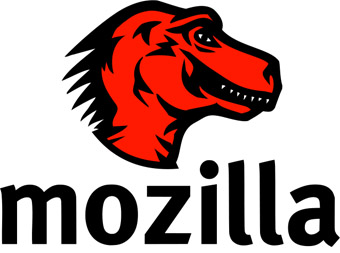Mozilla: Beyond Firefox
07 Jan 2012
Who doesn’t already know Firefox? But what other projects is Mozilla working on?
I’ve taken an interest lately in finding out more about Mozilla. I think it all started with reading some of the “How I got started with Mozilla” stories on the Planet Mozilla feed.
I’ve always been interested in Mozilla’s work. It’s not open source applications that they build. Most companies now build some tool and open the source code to everyone. This is a noble effort on their part but I don’t think that what open source development is about. It’s about “Open” before “Source”. Having a community-driven open development process is the key here. Involve the community in the process designing features, and building them. Invite developers to listen in on your meetings. It’s a great learning tool for new developers who can learn about what it’s like to work on a team. This is what I really admire about Mozilla, the open process. I’ll list later in this post some links on where you can see for yourself what I’m talking about.
Before I talk about all those projects, I want to take a moment to mention the Mozilla manifesto (which I translated to Arabic back in 2009). Take a minute to read it. It might seem a high level goal that is not related to daily operations but reading a post about webOS and Mozilla lately, I watched how it’s on everyone’s mind. I think it really helps the mozillians stay focused on keeping the Internet open when they measure their decisions against the manifesto.
Firefox, Aurora and Nightly
There was always a nightly build of Firefox that if you search for it you can find an FTP page for it but it wasn’t official. With the new approach of versioning and releasing Firefox, nightly builds of Firefox have an official name “Nightly”. Last year, Mozilla came up with the 3 different names and inspiring logos to make it easier to adopt beta version. Firefox is the stable final release for the masses, Aurora is the beta release, it’s stable but could have few bugs. Nightly is cutting edge and updates every night. I use Nightly and love that there’s a 64 bit version of it. You can get it from Nightly’s page. You can also follow Nightly news on @FirefoxNightly or Tumblr. They post details of the upcoming features. For more details, here’s a complete list of features of Firefox, Aurora and Nightly. Here’s an example of a feature that should land soon in Nightly, the new Home Tab.
Mozilla Labs
Mozilla labs is the home of many great ideas that usually are built as addons to Firefox. Some of these projects “graduate” and become part of Firefox like:
- Jetpack: the restart-less addons platform.
- Personas: which provides an easy way to skin Firefox.
- Sync: the indispensable sync capability to keep your Firefox profile up to date on multiple computers.
Other projects are not so lucky and are not active anymore including:
- Ubiquity: one of my favorite projects. Task-centric natural-language-based command line that brings web tasks from any web site to your fingertips. It’s extensible and builds on web standards (HTML, CSS, and JavaScript).
- Prism: remember how Microsoft annoyed the heck out of everyone with the new innovation “Pin a website to taskbar” feature in IE9. Well, before that there was Prism. Run any web app as a desktop application with the help of Firefox.
Meanwhile, a number of projects is always active:
- Test Pilot: collects usage data and user feedback while maintaining user’s privacy. <li>Contacts: centralizes the user’s contacts in the browser and gives access to online services when requested and allowed.
- Skywriter: a web-based code editor.
BrowserID
OpenID was a noble effort to outsource and centralize authentication of all the websites that we deal with everyday in a way that removes the hassle. For so reason, mainly the long ugly un-memorable URL, OpenID didn’t take over the web in the way it was hoped to.
Mozilla is take a shot at this problem with BrowserID. Instead of outsourcing authentication to a third party, BrowserID uses the browser to authenticate users using their email address. You add your address as your browser ID and verify it by clicking a link in an email you receive from the BrowserID service then every site wants to authenticate you can rely on BrowserID for that. Watch the video for a demo:
More info on BrowserID is the introduction post or on Identity at Mozilla page. Here’s a quick tutorial for developers, the demo site from the video. You can follow the development or contribute on Github.
WebFWD
WebFWD (Web Forward) is a new program from Mozilla to support open source projects with mentorship, access to Mozilla global network and infrastructure and resources. If you have an open source project that helps keep the web open, you can qualify for support from Mozilla. Read a brief introduction here or follow the program’s news on their blog or @MozWebFWD or watch some videos.
BigBlueButton is one of the projects participating in Mozilla’s WebFWD. It’s an open source project that enables universities and colleges to deliver high quality learning experience to remote students. Here are some videos showing how BigBlueButton works. It’s open source, download it now.
Mozilla Popcorn
Mozilla Popcorn tries to break videos from a big blob into browse-able element, this is how I see it. Videos, even though they’re everywhere on the web now, are still one element. You press play and watch. You can’t search in a video, you can’t make the video interact with other elements or contents that are related to this video. Popcorn tries to bring the web into video.
Watch the Shakespeare demo to get an idea of what Popcorn can do, it’s awesome (you’ll need a modern browser with HTML5 capabilities). Follow the project’s news on their blog or @PopcornJS. Download a copy, or follow the development on Github.
What Else?
There’s one more project I’d like to talk about, it’s the Boot to Gecko mobile OS. I think it’s a big enough topic that it merits its own post especially I don’t know much about it and would like to do more reading on it. If you have good resources on the topic, please mention them in the comments.
This was a quick tour of the Mozilla projects that really interested me over those past couple of weeks. I’m sure there are much more of them our there. If the list is missing your favorite project, mention it in the comments or blog about it, I’d love to read more about it.
Follow @Firefox or on Facebook or Contribute effort to the organization. Get some Mozilla and Firefox gear or Donate and get a free shirt.

